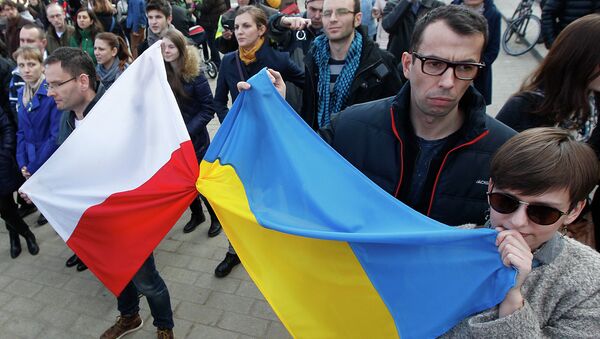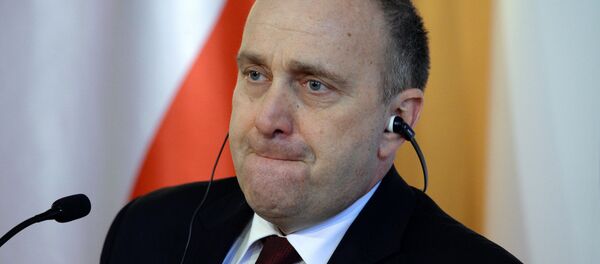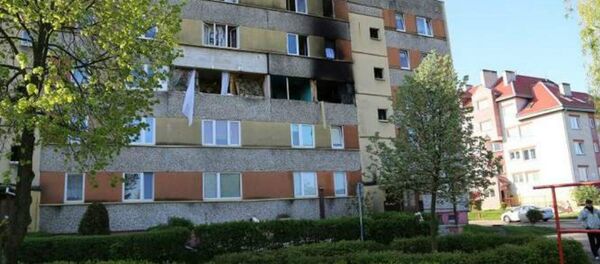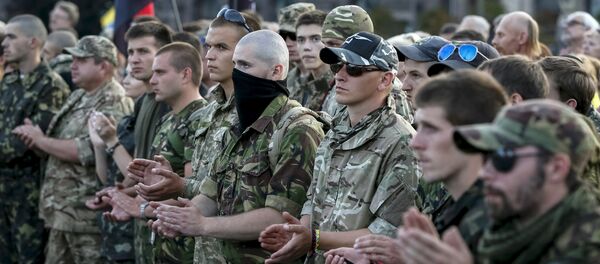"Listening to media reports and to the statements of politicians, it seems as if the whole of Poland is behind the Ukrainians in their conflict, supporting our country's involvement in the matter," Gasior began. The reality, he added, is that "nothing could be further from the truth."
The truth, according to the journalist, is that "almost half of Poles think that we are [already] engaged too much, with an equal number against the idea of supporting our neighbor even politically."
The journalist explained that "Duda's proposal has unleashed a political firestorm, with commentators complaining that Duda is using the issue of involvement in the peace negotiations" as an election campaign strategy. Duda, who ran as the candidate for the opposition Law and Justice Party in presidential elections this May, is now said to be openly stumping for his party ahead of the parliamentary elections which are scheduled for October.
"Except Schetyna too had said, only a few months ago, that what is happening on our eastern border must be discussed and resolved with Poland's participation," the journalist noted. In Gasior's words, the fact that politicians from both major right-of-center parties have now called for greater Polish involvement in the Ukraine conflict "confirms that [the issue] has turned into almost a dogma in our country."
Poles Divided
Using the results of recent opinion polling on Poles' support for Ukraine, Gasior explained that the idea that the majority of Poles actively support their country's involvement in Ukraine is actually a myth. "Such conclusions are a gross over-simplification, if not an outright falsehood. This fact has been confirmed by opinion polling taken since the outbreak of war in Ukraine. They show very different margins between the sympathizers and skeptics on the Ukraine issue."
The journalist concluded from these figures that while "Poles are interested in the events in Ukraine, [with] most of them also supporting and sympathizing with its pro-Western aspirations…this does not change the fact that half of the population has made clear that 'all of this should happen without our involvement.'"
The History and Ethnic Stereotypes Behind the Problem
Gasior explained that there are several reasons for Poles' hesitation in assisting Ukraine, and for their unsympathetic attitudes toward the country in general.
"Dominating, of course, is the fear of confrontation with Russia. Engagement, even politically, is looked upon as tempting fate and placing Poland under the threat of war, which lurks just over the border," the journalist noted.
"But that's not the only reason," he continued. "The reluctance for 'interfering' in the affairs of our neighbor also stems, at least in part, from Poles' general dislike of Ukrainians. The results of a comprehensive 2012 study by the Center for Public Opinion Research (CBOS) are telling, finding that next to the Russians, Ukrainians are the least well-liked" country among Poland's neighbors, with 32 percent of Poles having unsympathetic feelings toward their eastern neighbors.
Writing on the issue of Polish anti-Ukrainian attitudes several times over the past few years, Gasior explained that the antipathy has many reasons. These include historical bad blood, chief among them the fascist Ukrainian Insurgent Army's massacre of between 55,000 and 120,000 Poles, mostly women in children, in regions of western Ukraine formerly belonging to Poland.
"Moreover," the journalist explained, "the CBOS study confirmed that it's also a matter of general perceptions of 'the East' as a poor and more backward region. Some time ago, a friend of mine told me that Ukraine fits the stereotype of a kind of 'Mexico of Europe', — a nation of "poverty, prostitutes, cleaners and mafia."







